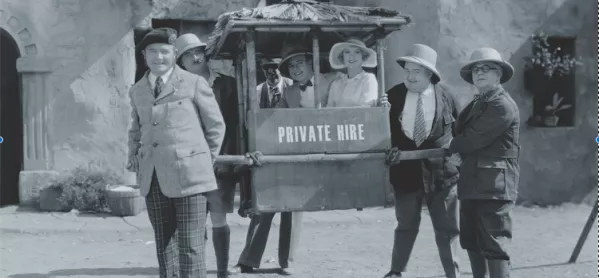- Home
- Are independent schools in danger of falling foul of political expediency?
Are independent schools in danger of falling foul of political expediency?

Here is quick quiz for you: which UK industry is worth approximately £10 billion to the UK economy but is never openly celebrated by government or opposition? It is an industry that supports around 227,000 FTE jobs in this country and is worth more than £3.6 billion in tax revenues to the Exchequer every year. Here’s another clue: it saves the taxpayer £3 billion per year and it is an industry whose leading players are expanding into overseas markets as diverse as China and the UAE, where its product is clearly viewed as world class.
Yup, that’s right: I’m talking about independent schools. For those of us who work in such schools the future has rarely looked so bleak. Politically, we have very few friends and quite a lot of enemies. What friends we did have are now lining up to attack us: remember nice Mr Gove telling state schools they ought to aspire to the standards of private schools? Sounding more like a member of Momentum, Mr Gove now believes in putting VAT on fees and “soaking the rich”.
The atmosphere has changed - and changed very fast. It may be that the forces that saw Corbyn pushed to the gates of Downing Street came from deep reserves of angry anti-austerity and anti-elitism. These could be the same revisionist forces that we see in RhodesMustFall in the UK, or has become vocal in the US with the tearing down of perceived white symbols of privilege and racism. The tragedy - and timing - of Grenfell Tower was important because it came to symbolise inequality: it still stands, a mute and articulate expression of the rich ignoring the poor, of division and neglect.
Societal changes such as these are difficult to read - and even more difficult to predict where they will go next. But politicians are not slow in trying to interpret, anticipate and read the direction the electorate is moving in. In the current climate of turbulence, where families and friends, let alone old political allegiances, have been torn apart by Brexit, common enemies are useful things: they can be the scapegoats for society’s ills - the causes, not the beneficiaries, of deepening division. Independent schools are an easy target.
Independent schools and inequality
For Sam Freedman, former policy adviser to Michael Gove and now executive director of Teach First, independent schools are a major contributor to inequality because “they are giving a very different and more elite education to a specific group in society”. Perhaps this view is the real reason the Scottish government recently effectively declared war on its own fee-paying schools by taking away their business rates relief. For those involved in private schools north of the border, this makes no financial sense at all and is politically motivated. But it doesn’t make much political sense, either, especially if, like the SNP, you are allegedly committed to lessening social inequality. There are many Scottish schools who are deeply involved in partnerships with state schools, and which offer 100 per cent bursaries to children from disadvantaged backgrounds. Such worthy schemes are now at risk, but this doesn’t matter when so many voters in Scotland want fee-paying schools to lose their charitable status.
It probably doesn’t matter to the vast majority of parents who, even if they wanted to, could not hope to send their children to the very cheapest independent school, let alone those that charge in excess of £30,000 per year. Who cares if Corbyn and McDonnell do as they say they will do and put VAT on school fees? Yes, many schools will close, but for a lot of people that is a small price to pay for the financial benefits gained and the inequalities seemingly ended.
Depoliticised climate
But the majority of independent schools will survive - and when the smaller ones close, the surviving ones will benefit, growing ever larger. The Darwinism of the market will apply here as much as it applies elsewhere, regardless of what a new, radical Labour government might wish for. Only outright abolition will erase the sector, and not even Corbyn advisor, Seamus Milne, a Winchester College old boy, is advocating that. Undoubtedly some children will move to their local state schools - raising standards in some, lowering standards in others - but generally adding to the strain on that sector. Rich parents from overseas will move elsewhere, sending their offspring to grateful schools in Switzerland and the US, or to Wellington College, China, or Brighton College, Dubai.
What all schools, regardless of whether they are free, cheap or expensive, desperately need, is to see a depoliticised climate. Schools have for too long been used as vehicles for solving the many ills of society - and teaching has changed to meet these demands, with considerable cost to individuals and the profession.
It is sometimes easy to forget, especially in the current, fetid atmosphere - where online attacks are often swift and anonymous, bereft of responsibility or guilt - that independent schools, like state schools, are filled with dedicated teachers trying to do their best for young people. This is the prosaic truth. But truth, as we all know, is an early victim in the rush for political expediency.
David James is deputy head (academic) at Bryanston School in Dorset and tweets at @drdavidajames
Want to keep up with the latest education news and opinion? Follow Tes on Twitter and Instagram, and like Tes on Facebook
Keep reading for just £1 per month
You've reached your limit of free articles this month. Subscribe for £1 per month for three months and get:
- Unlimited access to all Tes magazine content
- Exclusive subscriber-only stories
- Award-winning email newsletters



